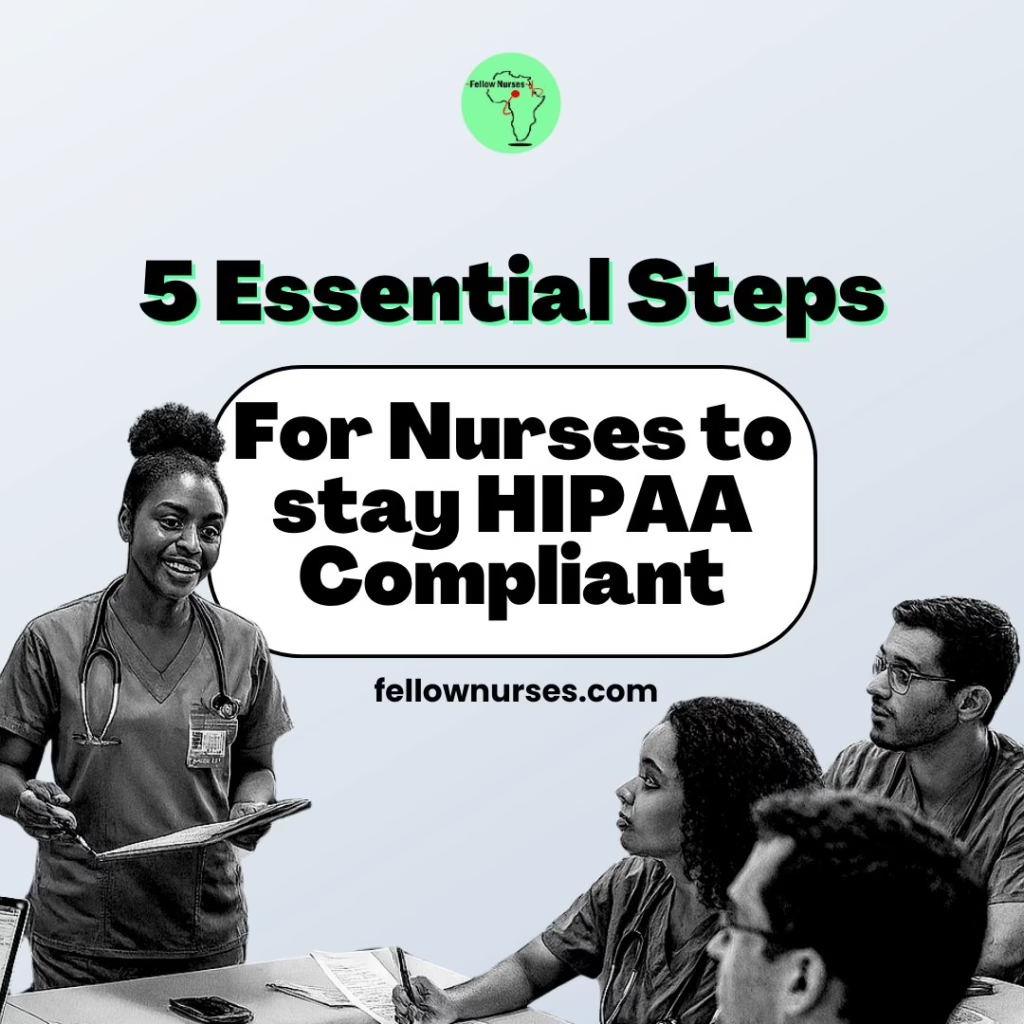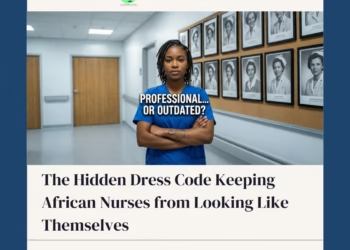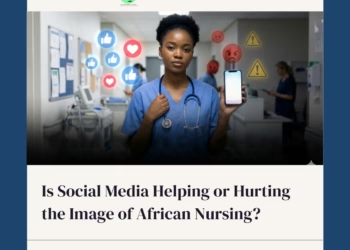Fellow Nurses Africa | Lagos, Nigeria | 02 October 2025

In today’s digital age, maintaining patient privacy isn’t just ethical, it’s the law. Recent cases of healthcare workers losing their jobs over social media posts highlight why HIPAA compliance must be a priority for every nurse. Here are five essential steps to protect your patients, your license, and your career.
Step 1: Never Share Patient Information, Even Without Names
HIPAA violations don’t require you to mention a patient’s name. Protected Health Information (PHI) includes any detail that could identify a patient, including:
-
Photos or videos taken in clinical settings (even if patients aren’t visible)
-
Descriptions of unusual cases or injuries
-
Room numbers, dates of admission, or treatment details
-
Physical descriptions, tattoos, or identifying characteristics
-
Location and timing details that could identify someone
Before posting anything work-related on social media, ask yourself: “Could someone identify a patient from this information, either alone or combined with other publicly available details?” If there’s any possibility, don’t post it.
Step 2: Understand Your Workplace’s Social Media Policy
Every healthcare facility has specific guidelines about what employees can and cannot share online. These policies often go beyond basic HIPAA requirements.
What to do:
-
Review your employer’s social media policy during orientation and annually thereafter
-
Understand the consequences of violations (usually termination)
-
Know that “I didn’t mean harm” or “I was just venting” are not legal defenses
-
Remember that deleting a post after the fact doesn’t erase the violation
Real-world example: In September 2025, nearly a dozen staff members at a California clinic were fired for posting a video that mocked patients. Even though they may have thought it was harmless, it violated professional standards and cost them their careers.
Step 3: Secure All Devices and Communications
HIPAA compliance extends beyond what you post online to how you handle patient information daily.
Essential practices:
-
Use strong, unique passwords for all work devices and systems
-
Never access patient records on public Wi-Fi without a VPN
-
Lock your computer screen every time you step away
-
Don’t discuss patient information in public spaces (elevators, cafeterias, hallways)
-
Use encrypted, approved communication channels when discussing patient care with colleagues
-
Never text PHI using personal phones or unsecured messaging apps
Remember: A overheard conversation in a coffee shop or an unlocked computer screen can be a HIPAA violation just as serious as a social media post.
Step 4: Obtain Proper Authorization Before Any Recording or Photography
Even with the best intentions, recording in healthcare settings is fraught with risk.
The rules:
-
Never livestream from your workplace – ever
-
Don’t take photos or videos in patient care areas, even if no patients are visible
-
If you need to document something for educational purposes, follow your facility’s strict protocols
-
Patient consent for photography must be explicit, documented, and limited to the specific use approved
-
Remember that other patients or staff in the background of photos also have privacy rights
Warning: “Educational content” is not a blanket excuse. The nurse who livestreamed medication administration in May 2025 claimed educational intent but was still terminated and investigated.
Step 5: Think Before You Post – Your Digital Footprint Is Permanent
Social media feels casual, but your posts can have permanent professional consequences.
Guidelines for safe social media use as a nurse:
-
Share general health education, not specific patient experiences
-
Celebrate your profession without sharing workplace details
-
Never vent about difficult patients, families, or situations online
-
Avoid posting anything that could reflect poorly on the nursing profession
-
Remember that “private” accounts aren’t truly private, screenshots spread quickly
-
Consider whether each post upholds the dignity of patients and the nursing profession
Ask yourself these questions before posting:
-
Would I be comfortable if my patient or their family saw this?
-
Would my nursing school or employer approve?
-
Does this maintain professional boundaries?
-
Could this be perceived as mocking, dismissive, or disrespectful?
HIPAA compliance isn’t about limiting your freedom, it’s about honoring the trust patients place in you when they’re at their most vulnerable. Every nursing student and nurse takes an oath to “do no harm.” In 2025, that includes protecting patient privacy in the digital world.
Your license, your reputation, and your career are too valuable to risk for a viral moment. When in doubt, don’t post it. The nursing profession needs dedicated, ethical professionals who understand that patient privacy isn’t negotiable, it’s fundamental to the care we provide.
Remember: The best social media policy for nurses is simple, celebrate your profession, educate the public, and keep your patients’ stories private. Always.










